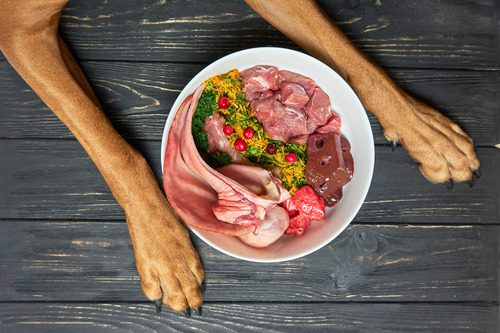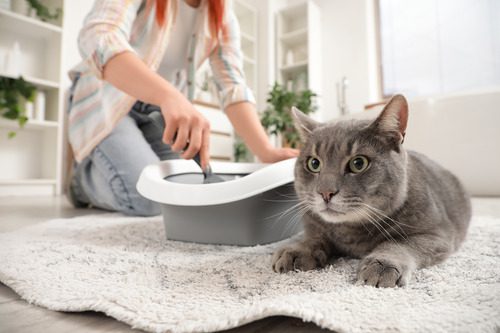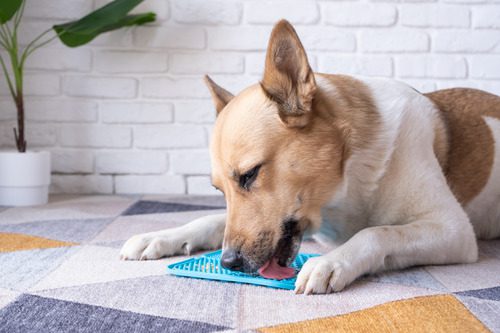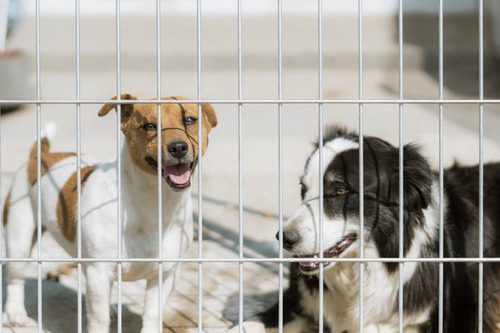Is Beef Liver Good For Dogs
If you’ve ever wondered about adding beef liver to your dog’s diet, you’re not alone. Many pet owners question the benefits and potential risks of feeding their dogs organ meats. In this blog, we will explore the nutritional value, benefits, potential risks, and appropriate ways to incorporate beef liver into your dog’s diet. By the end, you will have a clearer understanding of whether beef liver is good for dogs and how to make it a healthy part of their meals. If you have any questions, feel free to call Best Friends Veterinary Hospital for expert advice.

Nutritional Value of Beef Liver for Dogs
Beef liver is a powerhouse of essential nutrients that benefit your dog’s health. It is rich in vitamin A, which supports healthy vision, skin, and immune function. The B vitamins, especially B12, aid in energy production and maintaining a healthy nervous system. Additionally, beef liver provides significant amounts of iron, copper, and zinc, which support red blood cell production and immune health. It is also a great source of protein, necessary for muscle development and repair, and offers vital amino acids that help maintain strong muscles and support metabolic processes.
Benefits of Feeding Beef Liver to Dogs
Incorporating beef liver into your dog’s diet can offer several health benefits. Here are some of the key advantages:
- Improved Vision and Skin Health: The high vitamin A content in beef liver promotes healthy vision and supports skin health, helping to keep your dog’s coat shiny and smooth.
- Enhanced Immune Function: Vitamins A and B12, along with minerals like zinc and copper, strengthen the immune system, making your dog more resilient to infections and illnesses.
- Increased Energy Levels: The B vitamins and iron in beef liver boost energy production and prevent anemia, keeping your dog active and playful.
- Stronger Muscles: The protein and amino acids in beef liver support muscle growth and repair, which is particularly beneficial for active or working dogs.
- Better Digestion: The nutrients in beef liver aid in digestion and nutrient absorption, contributing to overall digestive health.
Potential Risks of Feeding Beef Liver to Dogs
While beef liver offers numerous benefits, it’s essential to be aware of potential risks. Feeding your dog too much beef liver can lead to certain health issues.
Risk of Vitamin A Toxicity
Beef liver is extremely rich in vitamin A. Although vitamin A is essential, excessive intake can cause toxicity. Symptoms of vitamin A toxicity include bone deformities, weight loss, and digestive issues. It’s crucial to feed beef liver in moderation to avoid these risks.
Contamination Concerns
Beef liver can sometimes contain harmful substances such as toxins and heavy metals, which can pose health risks to your dog. To minimize this risk, choose high-quality, organic beef liver and ensure it is sourced from reputable suppliers.
How to Safely Incorporate Beef Liver into Your Dog’s Diet
Introducing beef liver into your dog’s diet should be done gradually and with care. Here are some tips for safely feeding beef liver to your dog:
- Start with Small Portions: Begin by offering small amounts of beef liver to see how your dog reacts. This helps prevent any adverse reactions or digestive issues.
- Cook the Liver: Cooking beef liver can reduce the risk of contamination and make it easier for your dog to digest. Avoid using any seasonings or additives.
- Mix with Regular Food: Blend small pieces of cooked beef liver into your dog’s regular food. This helps balance the diet and prevents overconsumption of liver.
- Monitor Your Dog’s Health: Observe your dog for any signs of discomfort or illness after introducing beef liver. If you notice any adverse effects, consult your veterinarian.
- Follow Veterinarian Recommendations: Always seek advice from your veterinarian before making significant changes to your dog’s diet. They can provide personalized recommendations based on your dog’s specific needs.
Choosing the Best Beef Liver for Your Dog
Selecting high-quality beef liver is crucial for ensuring your dog receives the maximum benefits without any risks. Here are some factors to consider when choosing beef liver for your dog:
Organic and Grass-Fed
Opt for organic and grass-fed beef liver to ensure it is free from harmful chemicals and pesticides. Grass-fed liver also tends to have higher nutrient content.
Freshness
Ensure the beef liver is fresh and not past its expiration date. Fresh liver retains more nutrients and is safer for your dog.
Reputable Suppliers
Purchase beef liver from reputable suppliers who prioritize animal welfare and food safety standards. This reduces the risk of contamination and ensures the liver is of high quality.
Appropriate Serving Sizes for Beef Liver
Determining the right serving size of beef liver for your dog depends on their size, age, and overall health. Here are some general guidelines:
- For small dogs, limit beef liver to about one ounce per week. This prevents overconsumption and reduces the risk of vitamin A toxicity.
- Medium-sized dogs can have up to two ounces of beef liver per week. Ensure it is divided into smaller portions and mixed with their regular food.
- Large dogs can consume up to three ounces of beef liver per week. As with smaller dogs, it should be given in moderation and balanced with other foods.
Enhancing Your Dog’s Diet with Beef Liver
Incorporating beef liver into your dog’s diet can provide numerous health benefits, from improved vision and immune function to increased energy levels and better digestion. However, it is essential to feed beef liver in moderation to avoid potential risks such as vitamin A toxicity. Always consult with your veterinarian before making significant changes to your dog’s diet to ensure it aligns with their specific needs. For more information on whether beef liver is good for dogs and how to incorporate it into their diet safely, feel free to call Best Friends Veterinary Hospital. Our team of experts is here to provide guidance and support for your pet’s nutritional needs.
Recent Posts
About Best Friends Veterinary Hospital
Our veterinarians and staff warmly welcome dogs, cats, and a variety of exotic pets as patients here at our animal hospital, and we offer a host of services to give your unique family member a lifetime of excellent care.





